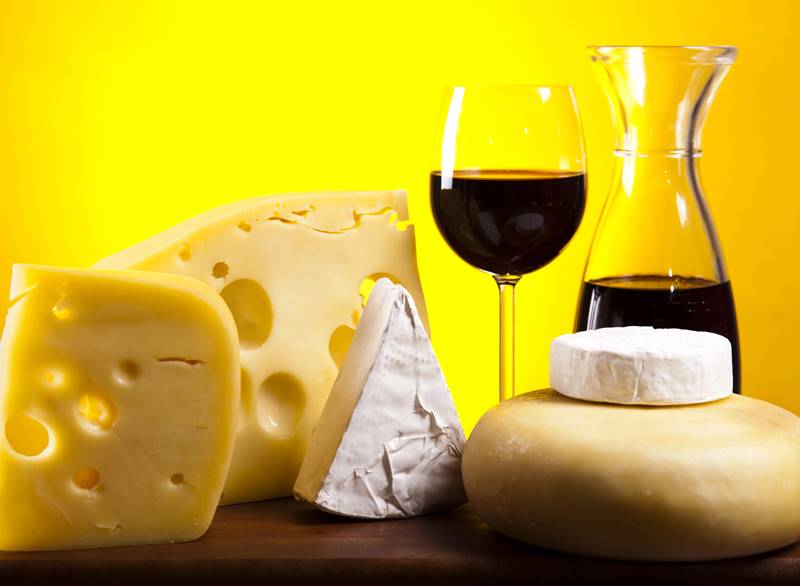Study Reveals Surprising Foods That Could Help Prevent Dementia
New Research Suggests Simple Dietary Changes Could Protect Your Brain
2024-05-29

Picture this: a cozy evening with a glass of red wine in one hand and a selection of fine cheeses spread out before you. It turns out, this indulgent scenario might be doing more than just delighting your senses—it could be giving your brain a powerful boost against dementia. According to a fascinating study from Iowa State University, a diet rich in cheese and red wine may significantly reduce the risk of dementia.
Published in the Journal of Alzheimer's Disease, the study involved nearly 1,800 British participants aged 46 to 77. The researchers delved into data from the UK Biobank, which provided extensive genetic and health information. Participants were asked detailed questions about their consumption of a variety of foods and beverages, ranging from fruits and vegetables to different types of meat and alcohol. They then took a Fluid Intelligence Test (FIT) multiple times over a decade to assess cognitive function.
Among all the foods analyzed, cheese emerged as the most protective against cognitive decline. This finding might be music to the ears of cheese lovers everywhere. Whether it's a creamy Brie, a sharp Cheddar, or a robust Roquefort, cheese appears to have properties that help maintain brain health well into later life.
A daily glass of red wine also showed significant benefits. While moderation is key, the antioxidants and other compounds found in red wine, like resveratrol, are believed to contribute to better cognitive function. This doesn't mean you should start guzzling bottles of Bordeaux, but enjoying a glass with dinner could be a delightful and beneficial habit.
The study also highlighted that a weekly serving of lamb was associated with improved long-term cognitive performance, though this effect was not seen with other red meats. Lamb's unique nutrient profile, including its rich content of omega-3 fatty acids and other essential nutrients, might be the reason behind this brain-boosting benefit.
The Salt Factor
On the flip side, the research underscored the detrimental impact of high salt intake on cognitive health. Excessive salt was found to be the biggest contributor to impaired cognitive function, suggesting that cutting back on salty foods might be a simple yet effective strategy to protect your brain.
Dr. Auriel Willette, an assistant professor in Food Science and Human Nutrition at Iowa State University, emphasized the need for further studies. While the current findings are promising, randomized clinical trials are necessary to confirm whether these dietary changes can directly improve brain health.
Neuroscience PhD candidate Brandon Klinedinst also pointed out that genetics play a role in dementia risk. However, he stressed that making the right food choices could potentially prevent the disease and cognitive decline altogether.
Klinedinst's statement, "Perhaps the silver bullet we're looking for is upgrading how we eat," resonates deeply. Understanding the impact of our diet on brain health could pave the way for new preventive strategies against dementia. This study adds to a growing body of evidence that what we eat can have profound effects on our overall health, including our brains.
Embracing a diet that includes cheese, red wine, and lamb, while reducing salt intake, could be a delicious way to support your cognitive health. As research continues to explore the intricate relationship between diet and brain function, it seems that enjoying some of life's culinary pleasures might just be the key to keeping your mind sharp. So next time you reach for that cheese platter and pour a glass of red, you can toast to a healthier brain.
Founded in 2007, Vinetur® is a registered trademark of VGSC S.L. with a long history in the wine industry.
VGSC, S.L. with VAT number B70255591 is a spanish company legally registered in the Commercial Register of the city of Santiago de Compostela, with registration number: Bulletin 181, Reference 356049 in Volume 13, Page 107, Section 6, Sheet 45028, Entry 2.
Email: [email protected]
Headquarters and offices located in Vilagarcia de Arousa, Spain.